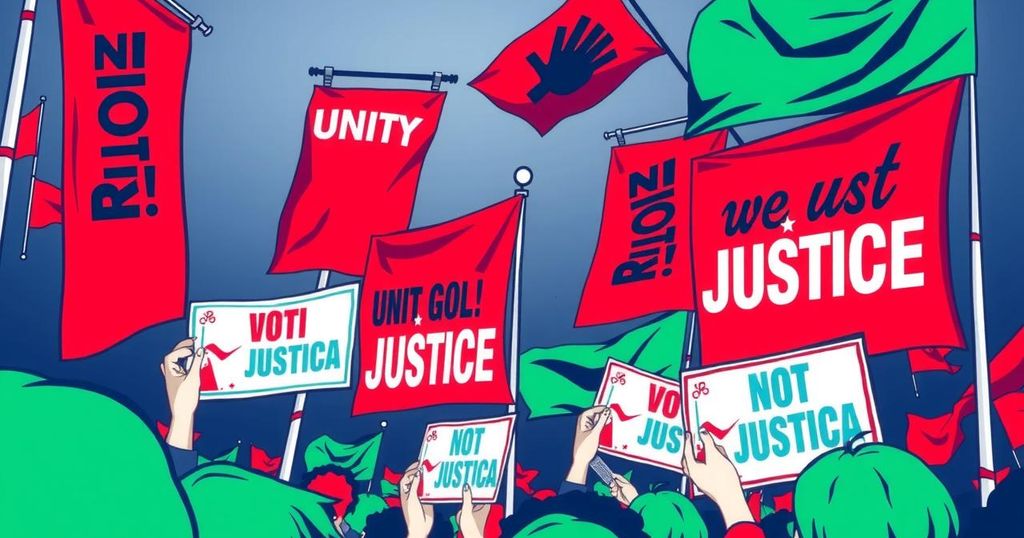Venezuelan leader Nicholas Maduro condemned the US deportation of over 200 mostly Venezuelan migrants to El Salvador, calling it a ‘kidnapping’. He insisted they are not criminals and announced plans to formally request their return, citing support from millions of Venezuelans. The deportations have sparked protests, highlighting ongoing tensions between Venezuela and the US regarding migrant treatment.
Nicholas Maduro, Venezuela’s leader, has condemned the recent deportation of over 200 Venezuelan migrants to a notorious prison in El Salvador, labeling it a “kidnapping.” He asserted these individuals are not criminals and voiced support for their return to Venezuela. Maduro stated, “Nayib Bukele should not be an accomplice to this kidnapping, because our boys did not commit any crime in the United States, none.”
Maduro emphasized that the deported migrants were not subjected to any legal processes, describing them as having been “deceived, handcuffed, put on a plane, kidnapped, and sent to a concentration camp in El Salvador.” He announced that Venezuela would formally request the return of these deportees, supported by millions of citizens’ signatures.
The deportations, which occurred under an agreement between the United States and El Salvador, included claims that those deported were connected to the Tren de Aragua gang. Trump defended the deportation citing an “invasion” of migrants, while Maduro highlighted that the Venezuelan government would seek their release. “I celebrate that millions of men and women from Venezuela have come out to support the families… to demand that the Government of El Salvador free them from this kidnapping,” he remarked.
The deportees were housed in the Counter-Terrorism Confinement Center (CECOT), criticized by human rights organizations for its treatment of prisoners. Demonstrations erupted in Caracas as families protested against the deportations, with many asserting that their relatives had been wrongfully labeled as criminals, echoing Maduro’s calls for their return.
Despite the claims of their affiliation with criminal groups, the White House has yet to present evidence linking the deported Venezuelans to any activities of the Tren de Aragua. Some individuals previously deported have denied these connections, including Daniel Simancas Rodríguez, who shared his experience as a victim of mistaken identity due to his tattoos and background. Maduro instructed his administration to expedite the repatriation of detained Venezuelan migrants, emphasizing their right to dignity and support.
In summary, Nicholas Maduro has strongly criticized the US deportation of Venezuelan migrants to El Salvador, calling it a ‘kidnapping’ and defending the rights of those deported. He has initiated efforts to formally request their return, bolstered by public support. The controversies surrounding these deportations reflect deep tensions between the US and Venezuela, especially concerning the treatment and rights of migrants. Furthermore, this situation raises important questions about the justification of criminal affiliations and the handling of deported individuals.
Original Source: www.cnn.com




